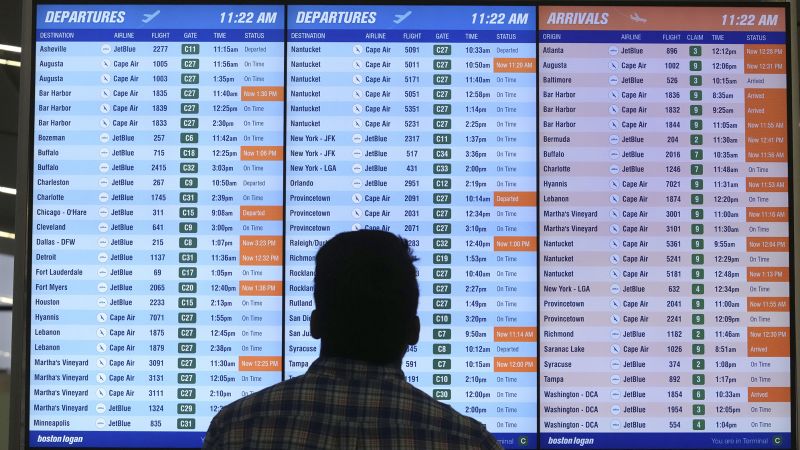With unpredictable weather and worker shortages, no airline is immune to widespread cancellations. Hundreds of thousands of travelers learned this the hard way recently, as they became stranded in airports across the country in the run-up to the Fourth of July holiday weekend.
For many of them, buying traveler’s insurance could have helped improve their situation.
The hurdles people must clear to get out of town when the system grinds to a halt can be excruciating.
For example, while most airlines will book you on the next available flight, it may not depart for days. And forget about getting any reimbursement for hotel stays, a missed cruise, Taylor Swift concert tickets or any other nonrefundable reservations you made at your destination. If you decide to switch airlines, be ready to pay a pretty penny — if you can even find a flight out.
However, some consumers are learning that planning ahead could help avoid a lot of headaches.
Travel insurance purchases are up 9% for trips this 4th of July compared to last year, according to data shared with CNN by InsureMyTrip, a travel insurance marketplace. And people are purchasing policies earlier than last year, according to the data.
Allianz Travel Insurance told CNN that many of their plans “will allow you to cancel your trip and recoup lost pre-paid expenses if your carrier can’t get you to your original destination for at least 24 hours from your scheduled arrival due to severe weather.”
But before you make a purchase, be careful to select the right insurance product.
A lot of travel policies will cover expenses you incur from a flight that was canceled due to weather conditions, said Meghan Walch, director of product for InsureMyTrip. However, standard policies often don’t cover you in these circumstances. But be sure to check the policy’s weather-related coverage before you purchase. Typically policies that offer it will be more expensive than the lowest-cost option.
Another caveat: In order to receive weather-related coverage, especially during hurricane season, you must have purchased the insurance “prior to a major storm being named,” since plans are “designed to cover unforeseen issues,” said Walch. That’s why she recommends purchasing a policy “soon after putting money down on a trip.”
If you get a policy ahead of time and encounter delays of six hours or more due to weather-related issues, you can generally expect to receive reimbursement for “incidental necessities” such as food and accommodations. In most cases you must pay for those expenses upfront and file a claim later to receive reimbursement, Walch told CNN. That’s why it’s important to save receipts for any payments you make.
Read the full article here




